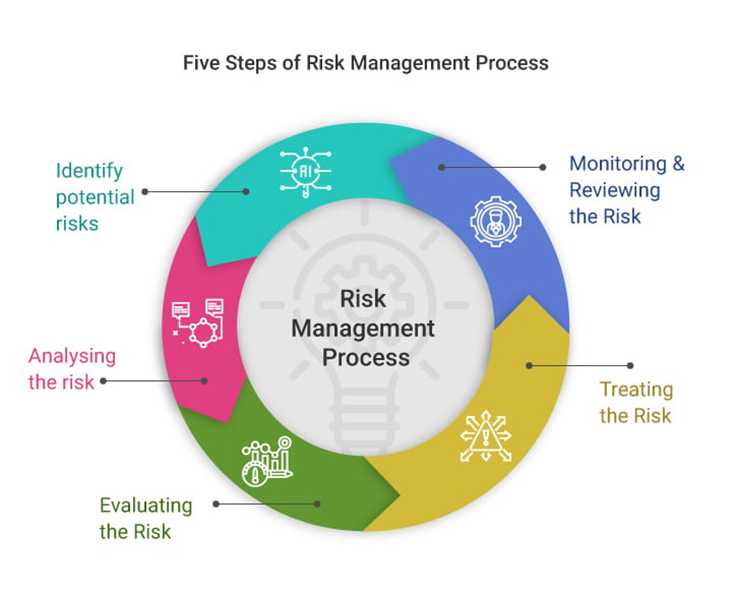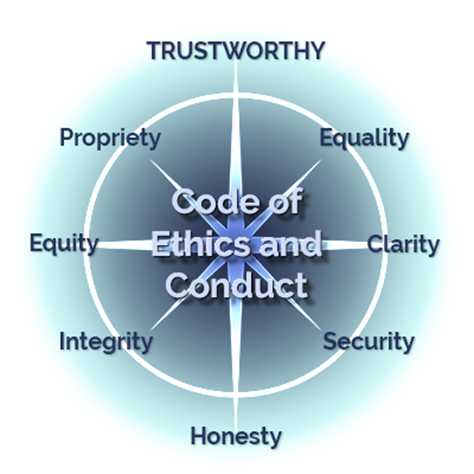Corporate Governance Policies are an integral part of Datamatics. The policies are not only implemented but also monitored at all hierarchies and in all locations.
These governance policies and principles directly or indirectly influence the Company's objectives and its achievement, risk management and performance optimization.

Datamatics Gen AI Policy guides using generative AI tools, such as chatbots and image generators, powered by large language models (LLMs). It aims to balance the benefits of increased work efficiency and streamlined processes with the need to maintain the privacy, security, and integrity of Company information. This policy applies to all personnel and covers the use of both third-party and proprietary generative AI tools, excluding systems using small language models (SLMs).

The Board of Directors of Datamatics Global Services Limited has established a comprehensive policy for evaluating the performance of individual Board members, Board Committees, and the Board as a whole. This initiative, known as the ‘Datamatics Annual Performance Evaluation Policy’ (‘Policy’), aims to drive significant improvements across three levels: organizational, Board, and individual director. The Policy is designed to enhance accountability, foster better decision-making, improve communication, and streamline Board operations. By systematically assessing performance, the Policy seeks to optimize the effectiveness and efficiency of the Board, ultimately contributing to the Company’s overall success and governance standards.

Datamatics values a diverse Board as crucial to its success, believing it enhances decision-making, governance, and business results. It is intended to promote diversity at board level. The Nomination and Remuneration Committee is tasked with evaluating Board composition and performance, ensuring diversity, and recommending suitable candidates. This process adheres to legal standards, promoting non-discrimination and inclusivity. The Company assess and maintain a balanced mix of skills and experience on the Board and periodically reviews diversity needs.

The Policy outlines our broad approach and framework for engaging with stakeholders. The Policy, in conjunction with our Code of Conduct, ensures consistency in stakeholder engagement across all operational areas of Datamatics. Each business unit is required to follow the principles of this Policy and commit to nurturing the Company’s stakeholder relationships, ensuring effective and consistent engagement throughout the organization. We identify stakeholders as those individuals, groups of individuals or organizations that affect us and/or could be affected by our activities, services and the associated performance. Our key stakeholders include Investors, Customers, Employees, Communities, Business Partners, Financial Service Providers, Regulatory and Government Bodies, NGOs/Social organizations, Media etc.

Datamatics practices a zero-tolerance approach to bribery and corruption and is committed to act professionally and fairly in all its business dealings and relationships and in implementing and enforcing effective systems to counter bribery and corruption in any form.
Datamatics mandates compliance with all applicable anti-bribery and anti-corruption laws in all markets and jurisdictions in which it operates. Whoever we, as a Company or as individuals, may deal with, and wherever we may operate, we are committed to doing so lawfully, ethically and with integrity.
Datamatics is commitment to always act with integrity to ensure that we are trusted by our customers, colleagues, business partners, and the communities in which we operate. As part of this commitment, any form of bribery and corruption is not acceptable. We prefer foregoing business opportunities rather than paying bribes.
This Anti-Bribery and Anti-Corruption policy has been formulated and designed to provide a framework for ensuring compliance with various legislations governing bribery and corruption globally and provides guidance on the standards of behaviour to which we must all adhere.

Datamatics is committed to adhere to the highest standards of loyalty, honesty, integrity, transparency and conduct of business operations in an ethical manner.
The purpose of whistle-blower policy is to provide a framework to promote responsible and secure whistle blowing. It protects employees, and/or third-party intermediaries wishing to raise a concern about serious irregularities within the Company. The policy neither releases employees, and/or third-party intermediaries from their duty of confidentiality in the course of their work, nor is it a route for taking up a grievance about a personal situation.
“Whistleblower” is defined as any personnel who has or had access to data, events or information about an actual, suspected or anticipated Reportable Matter within or by the organisation, and, whether anonymously or not, makes or attempts to make a deliberate, voluntary and protected disclosure or complaint of organisational malpractice.
Whistleblower can lodge a complaint in one of the following ways:

Risk management is an integral component of good corporate governance and fundamental in achieving the Company’s strategic and operational objectives. Risk Management policy provide framework for management of risks and mitigation of threats arising out of environment under which the Company operates.
Every business is prone to risks which are inherent in nature, the objective of the policy is to identify the risks, mitigate the threats arising out of those risks and if possible convert and capitalize the same in to opportunities. This is required to ensure sustainable business growth with stability and also transparency in reporting the risks.
Risk Management Process includes:

Datamatics strives to ensure high professional and ethical standards in all our business activities with a view to the best interest of Datamatics and its stakeholders. Values encapsulate the spirit of Datamatics and form the essence of Datamatics. These guidelines serve two purposes first, to assist in making the right decision. Second, it helps create confidence in minds of our customers, investors, suppliers and society at large with respect to our integrity and sincerity. However, the objective of this policy is to ensure no employee will be misguided by a sense of loyalty or profitability to ignore moral decency or disobey any applicable law.
This policy is applicable to all personnel of the Company located in India and overseas locations. All employees are required to follow the Code of Conduct and Ethics in letter and spirit.

Datamatics with the vision to be world-class organization admired for consistently delivering superior business value and achieving it by enhancing business efficiency for data-driven businesses through intelligent solutions and by maintaining a balance between Sustainability and overall business profitability, thus creating a long-term positive impact on the planet and society while providing more excellent value for all our stakeholders, we at Datamatics, conduct business in a manner that improves welfare, health and safety of workers/employees across our supply chain, ensures compliance with the law and adherence to ethical standards of governance and sustainability. To achieve this vision, we have put in place a policy that aligns our goals with our valued business partners and promote a culture of responsibility towards sustainability in all our stakeholders.
This policy applies to all our immediate business partners including service and supply partners (“business partner/(s)”) based on fundamental requirement of adherence to the internationally recognized standards on five core principles – Labour and Human Rights, Occupational Health and Safety, Environmental Sustainability, Business Integrity and Governance.
We are committed to work with our business partners through collaborations and improvement in their process for responsible procurement based on best practices. Aligning our business partners with this policy is a journey, not a one-time event.

Dividend is profits earned by the Company and divided amongst the shareholders in proportion to the amount of paid up shares held by them. Simply stated it is a return on investment made by the shareholders. The term “Dividend” includes any interim dividend.
This policy sets out principles to determine the amount that can be distributed to equity shareholders as dividend. The Company proposes to have a dividend distribution policy that balances the dual objectives of appropriately rewarding shareholders through dividends and retaining capital in order to maintain a healthy capital structure to support its future capital and growth requirements.
The dividend distribution policy includes the following parameters

Datamatics integrates Corporate Social Responsibility with Business objectives to make these initiatives an integral part of the Company’s profitable growth. Over the years, the Company has developed a thoughtful approach and attempts to address critical areas of impact to society at large. The Company drives its Corporate Social Responsibility (CSR) initiatives through a corporate project named ‘ASHA’ or under its brand name “Datamatics”.
Objective of the CSR Policy:
.jpg?width=800&name=Insider-trading%20(1).jpg)
Datamatics Global Services Limited is committed to transparency and fairness and strives to preserve the confidentiality of unpublished price sensitive information and prevent misuse of the same. The Company believes that every person has a duty to safeguard the confidentiality of all such information obtained in the course of his or her work at the Company. No Promoter, person who is part of the Promoter group, Director, Designated Employee may use his or her position or knowledge of the Company to gain personal benefit or to provide benefit to any third party.
To achieve these objectives, the Company has framed Insider Trading policy under the SEBI (Prohibition of Insider Trading) Regulations, 2015.
In light of various circulars issued by SEBI and Stock Exchanges on compliance with respect to SEBI (Prevention of Insider Trading) Regulations, 2015, below are the few DO’s and DON’Ts prescribed under the policy.
| DO's | DON'Ts |
| Inform Secretarial Team within 2 days from date of dealing in securities of the Company including, buy/sell/pledge. | Don’t trade in the securities of the Company without checking with the Secretarial Team. |
| Take Pre-clearance of trade in case proposed transaction exceeds Rs. 10 lakh. | Don’t do opposite transaction for a period of 6 months following the prior transaction. |
| Un-published Price Sensitive Information (“UPSI”) only needs to be shared on need-to-know basis. | Do not trade in securities of the Company when the Trading Window in CLOSED. |
| If you share any UPSI with any employee/ third party, you need to inform the Secretarial Team immediately. | |
| Update your immediate relatives details in the Insider Trading Software |

The policy is framed by the Board of Directors of Datamatics Global Services Limited in line with the provisions of Securities and Exchange Board of India (Listing Obligations and Disclosure Requirements) Regulations, 2015.

Workplace sexual harassment is a form of gender discrimination which violates a woman’s fundamental right to equality and right to life, guaranteed under Articles 14, 15 and 21 of the Constitution of India (“Constitution”). Workplace sexual harassment not only creates an insecure and hostile working environment for women but also impedes their ability to deliver in today’s competing world. Apart from interfering with their performance at work, it also adversely affects their social and economic growth and puts them through physical and emotional suffering.
India’s first legislation specifically addressing the issue of workplace sexual harassment; the Sexual Harassment of Women at Workplace (Prevention, Prohibition and Redressal) Act, 2013 (“POSH Act”) was enacted by the Ministry of Women and Child Development, India in 2013. In line with the POSH Act Datamatics has framed the POSH policy.
Objective of the Policy
Read the full policies here:
Datamatics Global Services Limited
Datamatics Professional Services Limited
Datamatics Information Solution Limited

The Company promotes and supports a diverse workforce at all levels of the Company across geographies. The Company believes that Diversity and Inclusivity (D&I) at the workplace is an instrument for growth. The Company values and celebrates the uniqueness of every individual by fostering a culture that promotes workforce diversity, flexibility and inclusion.
Datamatics considers its employees a pivotal part of the Company and is committed to treating all associates with dignity and respect. The Company is dedicated to creating a working environment with the highest degree of ethical and virtuous work practices by ensuring fairness at every step of the employee life-cycle; to build a progressive and diverse workforce. The Company holds in high regard the guidelines laid down under the international conventions and laws relating to slavery.
The objective of this policy is to ensure that the Employees act with integrity and treat others fairly and with respect, irrespective of their differences. The Company aims to provide its employees with an environment of equality and respect for all employees and contractors and not discriminating against any individuals on the basis of their gender, age, disability, ethnicity, sexual orientation, family status, religious beliefs and abilities.
This policy shall apply to all full-time employees and employees engaged through contractors of the Company and its subsidiaries.



The Code of Conduct for Board and Senior Management Personnel at Datamatics Global Services Limited emphasizes the commitment to uphold the highest standards of integrity, professionalism, and ethical conduct. This Code aligns with regulatory requirements under the Securities and Exchange Board of India (Listing Obligations and Disclosure Requirements) Regulations, 2015 read with Schedule IV of Companies Act, 2013 ensuring all directors and senior management personnel maintains transparency, accountability, and respect for company's values and legal obligations.
Key highlights include:The policy fosters an environment of ethical governance and ensures that all actions by the Board and Senior Management contribute to the long-term success and reputation of the company.”
Datamatics is a Digital Technologies, Operations, and Experiences company that enables enterprises to go Deep in Digital to boost their productivity, customer experience and competitive advantage.